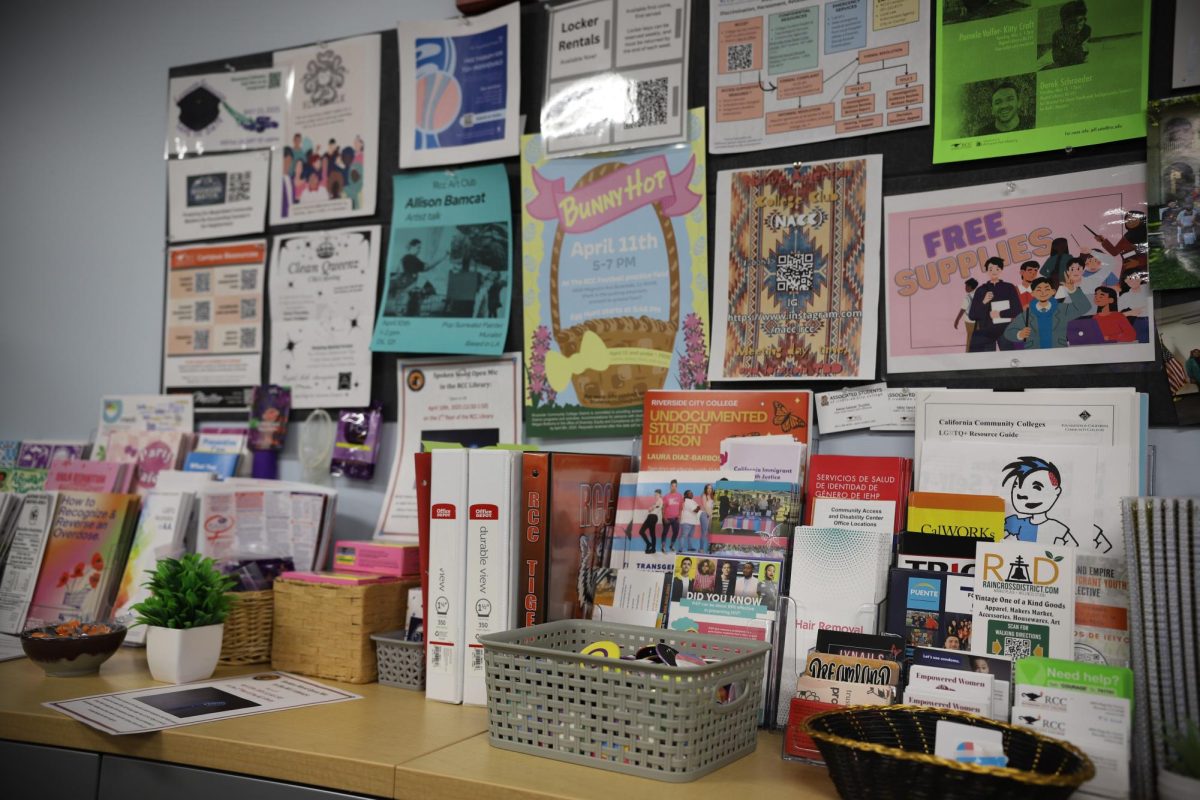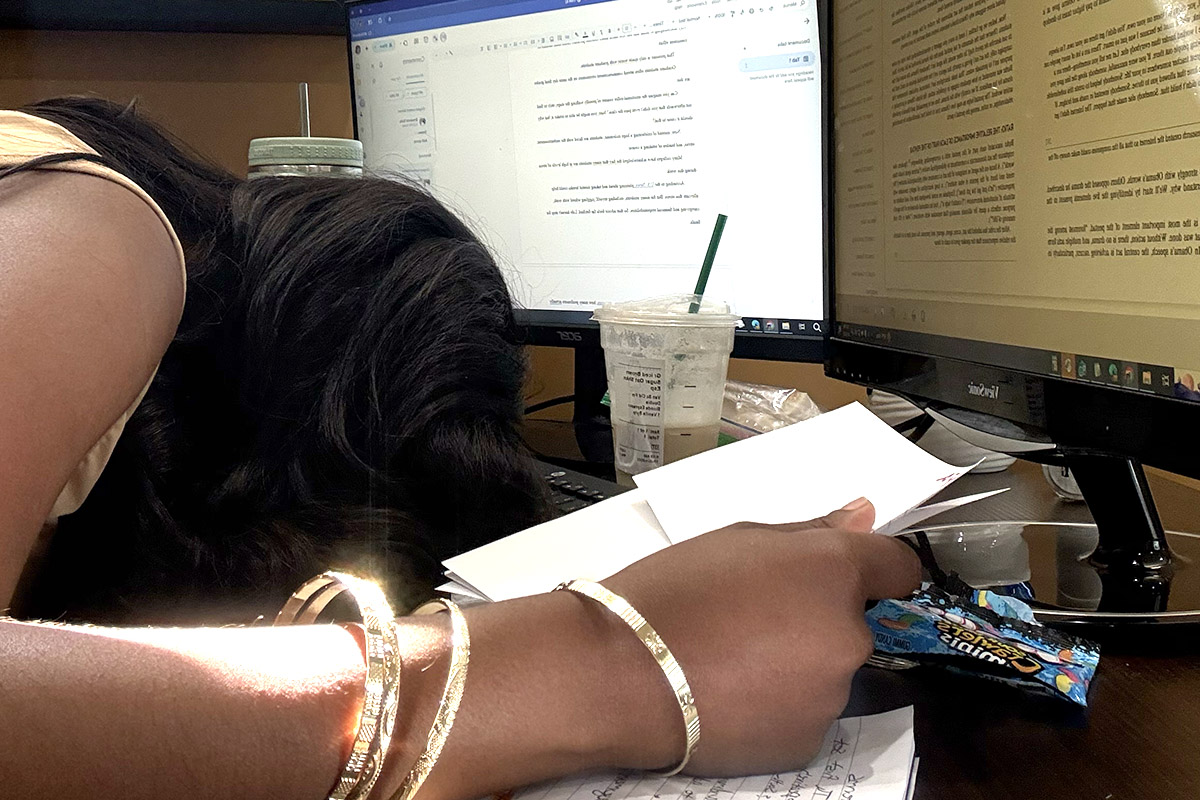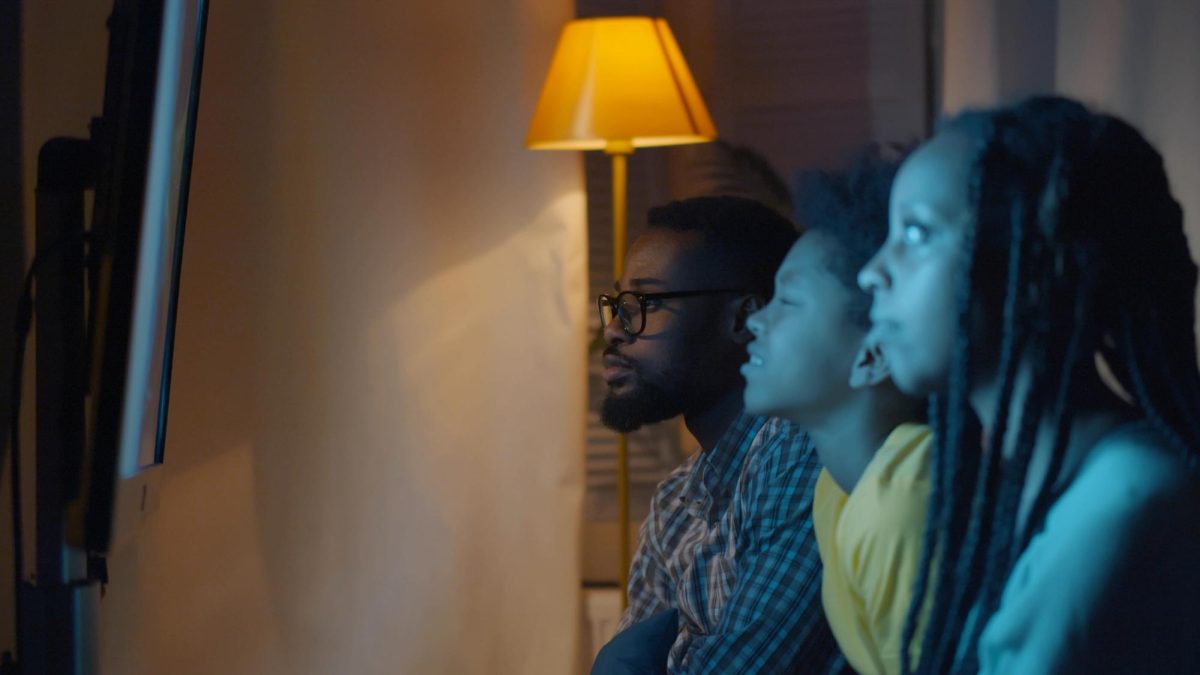Zara Hurtado | Special to Viewpoints
Published: Dec. 1, 2014
Entitlement is the belief that something is owed to you. That society is in debt to you, that you deserve something more. But what happens when the “prize” is another human being?
Many people have differing opinions on what male entitlement is.
“For me it means that men choose to see their sex as a dominant form, in such a way that all that society today is indebted to their manhood and plain existence in the world,” said RCC student Genesis Beltran.
Some argue that it is a pre-set way of thinking , however, this is not the only sort of entitlement that exists.
“There are all types of entitlement like when you have this privilege you’re born with, you go around not noticing how you step on people, and you don’t notice how you oppress people. Or how much power you have on your side, because you have so much privilege,” said Paola Alcala, a member of the Blood Orange Infoshop in Downtown Riverside. “It goes with white privilege, heterosexual privilege, cis-gender and male privilege.”
The predominance of men in power has a lot to do with our culture. Men are highly valued, and as a result, some men feel they are granted certain privileges over other minorities.
“There’s a lot of antecedent in Western thought that definitely contributes to male dominance,” said UCI student Jack Montgomery. “We appropriate women into the domestic sphere. Men are ‘supposed’ to run things because we are somehow ‘more able.’ But I’m sure that I have learned behaviors that contribute to the whole dominance issue.”
The topic of male entitlement itself is hotly debated, as there is a disagreement as to whether or not it even exists.
“For me, personally, I think it does exist. I don’t consider myself to be a part of the group who takes advantage of male entitlement because I’m a flamboyant male, so I don’t think male entitlement really applies to me,” said RCC student Bryce Hathaway. “I think someone needs to point another human being out, because if you go ignorant about any sort of enlightenment about the equality between genders…they’re not going to.
“I feel you need to step in, to talk with those people. But of course you need to remain professional,” Hathaway continued. “From past experiences, I know you can’t get emotionally involved. You won’t get the point across. You need to hold back and let these people realize that human beings are human beings, whatever is between their legs and whatever gender they identify with. It is something I tend to talk to men about.”
Although male privilege cannot be blamed on all men, the fact remains that the perpetrators are in fact male. This “privilege” is often abused and women are left the victims.
As with everything, not every woman’s experience is the same. Ethnicity, sexual orientation and even individual body types factor in to how they are harassed by men.
“Every woman faces different harassment based on their ethnicity,” said Alcala. “There is this video going around on Facebook, ’10 Hours,’ and it is mentioned that the girl in it is white passing. I don’t know what she is, but the way she is approached by men is completely different than a black woman or a disabled person or a queer person. Even for people who are fat there is a whole different type of harassment. People have posted some really intense stuff on the Guerillera Collective, and I think it is completely different for everybody with how they look, their ethnicity, their gender, their sexuality, it’s always going to be very different.”
There are precautions women can take as a response to the pervasive nature of male entitlement. Because of it, women do not feel safe to walk alone at night, or to venture out of their homes without first thinking of the ways they may have to defend themselves.
“When I’m by myself, I make sure I have something handy like my keys or a lighter in my hand, just in case,” said Payton Prentice. “A lit cigarette maybe, in case someone tries to assault me and I’m alone because physically, I’m not that strong. It’d be harder for me to fight off someone who is bigger. It’s dangerous for young women to be walking around by themselves and it shouldn’t. But men think they deserve sex.”
This sense of ownership over women and the belief that women should be complacent is an attitude taught from childhood.
“From the time you’re raised it’s ‘boys will be boys’ when it comes to that kind of thing and it’s not the approach that should be taken. Men are taught from a young age that women are objects. They see them as a prize,” Prentice said. “I think men see it that way. If they see a woman dressed a certain way they think she wants attention, but really she’s doing it for herself.”
However, dismissing the issue and claiming that all men are not culprits is the same thing as denying the issue exists.
It is hard to imagine that change could happen overnight because this attitude has been an integral part of our nation’s identity for so long.
“Learned patterns of thought are difficult to change, but if children can be taught equally, regardless of sex, and not be taught things as predefined by their gender, things like male entitlement can be eliminated,” Beltran said. “If boys are consistently taught that who they are amounts to their presence and their strength, entitlement is then a reaction to that learned ideology.”
As the discussion grows on social media, it also grows on the ground. A prime example would be the Blood Orange Infoshop, located at 3485 University Ave., a safe place for people of all background to share their experiences.
“It’s called intersectionality. We focus on all sorts of oppression on different levels because everyone has different oppressions and different privileges,” said Alcala. “It goes further than feminism. You involve race, sexuality, gender…it’s way more than women issues.”
The Blood Orange Infoshop holds events to celebrate the empowerment of all women, including queer women and people who identify as women. One such event is Ladyfest, which first came to Riverside in 2009.
“What Ladyfest in Riverside represents is the empowerment of, mostly, people of color. It’s been going on since the 90’s. it started when the Riot Girl movement started. There weren’t many people of color, gay women or gay men. It has been very cis-women centered, so this year we’re going to try to open it up to queer issues,” said Alcala.






